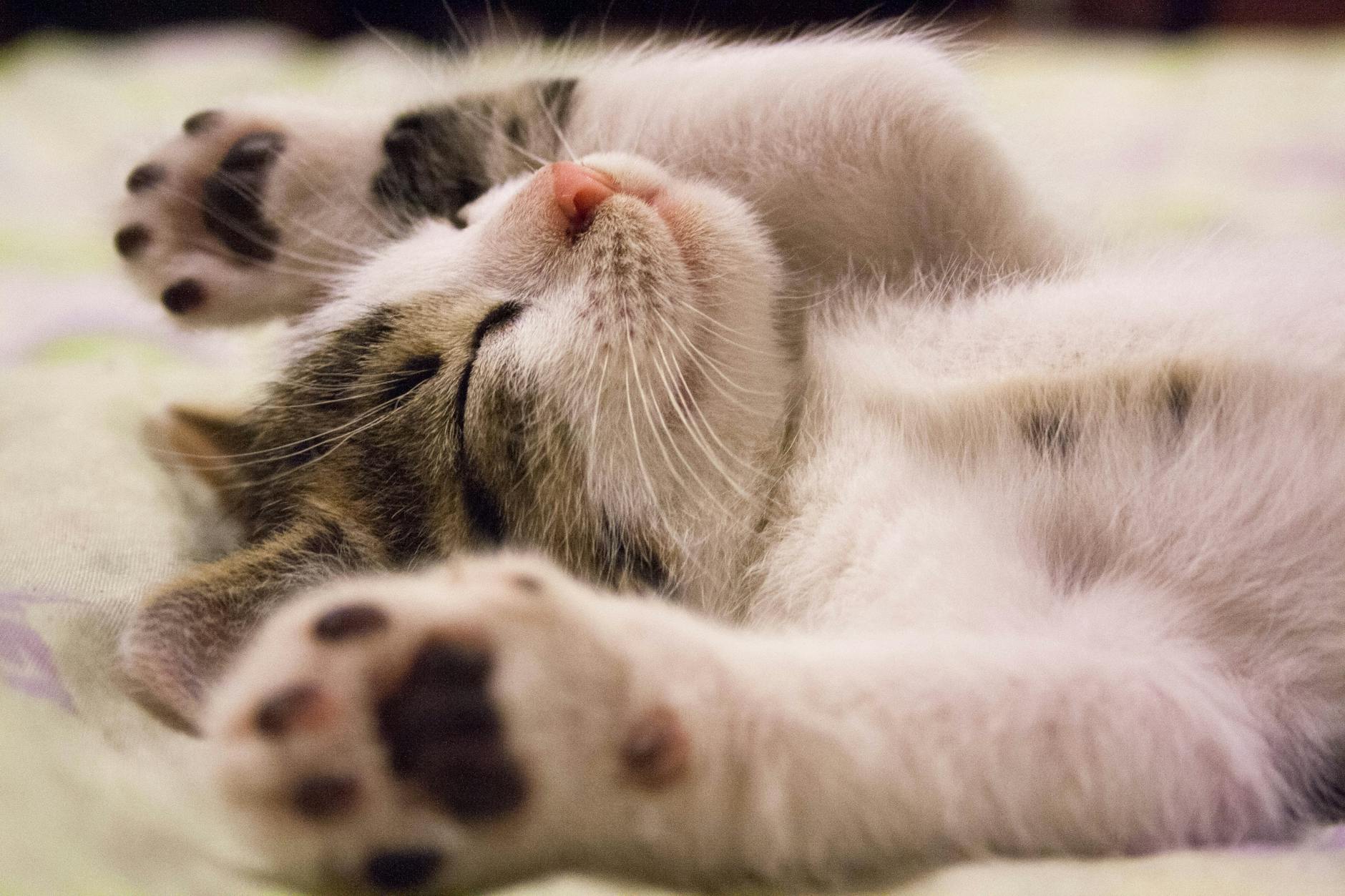Rabies poses a significant threat to cats, making it essential for pet owners to understand its dangers. The rabies vaccine for cats is a crucial tool for preventing this fatal disease, protecting not only your pet but also public health. With the correct vaccination schedule, you can safeguard your feline companion from potential exposure to rabies. Furthermore, being aware of common misconceptions and legal requirements surrounding the vaccine empowers owners to make informed decisions for their pets’ wellbeing. By prioritizing vaccination, you play a vital role in mitigating the risks associated with this deadly virus.
Understanding Rabies and Its Risks to Cats
Rabies is a viral disease that poses a significant risk to both animals and humans. It primarily spreads through the saliva of an infected animal via bites. Here are some key points to understand about rabies and its implications for cats:
- Transmission: Cats typically contract rabies through bites from wild animals, such as bats or raccoons.
- Symptoms: Once infected, cats may exhibit various symptoms, including aggression, paralysis, and difficulty swallowing. Behavioral changes are common.
- Fatal Outcome: Rabies is almost always fatal once clinical symptoms appear. This makes vaccination crucial for prevention.
- Human Health Risks: Rabies is zoonotic, meaning it can be transmitted to humans. If your cat is not vaccinated, they can pose a danger to your family and community.
The rabies vaccine for cats plays a vital role in safeguarding their health. Vaccinating your cat not only protects them but also helps prevent the spread of this deadly virus to other animals and humans.

How the Rabies Vaccine Works
Understanding how the rabies vaccine for cats works is crucial for every pet owner. Here’s a simplified overview:
Mechanism of Action:
- The vaccine introduces inactivated (killed) strains of the rabies virus.
- This triggers an immune response, prompting the cat’s body to produce antibodies.
Immune Response:
- Once vaccinated, your cat’s immune system retains a "memory" of the virus.
- If exposed to rabies later, the cat’s body can rapidly produce antibodies to combat the infection.
Duration of Protection:
- The rabies vaccine for cats typically offers protection for 1 to 3 years, depending on the type of vaccine used.
- Regular booster shots are necessary to maintain immunity.
Vaccination Types:
- Killed Virus Vaccine: The most common type, safe and effective.
- Recombinant Vaccine: Uses a harmless virus to deliver rabies genes, stimulating an immune response.
In conclusion, ensuring your cat receives the rabies vaccine for cats is an essential step towards safeguarding its health and wellbeing.
The Recommended Vaccination Schedule for Cats
Establishing a proper vaccination schedule is crucial in ensuring your cat receives the rabies vaccine for cats at the right time. Here’s a simple guide to help you understand the recommended vaccination timeline:
Kitten Vaccination (6-8 weeks):
- First dose of the rabies vaccine for cats
- This is often during their initial veterinary visit.
Booster Dose (12-16 weeks):
- Second dose, typically administered in conjunction with other vaccinations.
- Essential for building immunity.
Annual Vaccination:
- Some veterinarians recommend booster shots every year for certain regions.
- Check local laws as these can affect the schedule.
Legal Requirements:
- Many states mandate cats over a certain age to be vaccinated.
- Consult your local regulations for compliance.
By following this schedule, you help safeguard your cat against rabies, a potentially fatal disease. Always consult your veterinarian for personalized advice regarding the rabies vaccine for cats to ensure your pet’s health and well-being.
Common Misconceptions About the Rabies Vaccine
Many pet owners harbor misconceptions about the rabies vaccine for cats, which can lead to reluctance in vaccinating their feline friends. Here are some common misunderstandings clarified:
Misconception 1: "Cats don’t need the rabies vaccine."
Reality: All cats, regardless of their living situation, should receive the rabies vaccine for cats. Rabies is a fatal disease that can affect any unvaccinated cat.Misconception 2: "Vaccination isn’t necessary if my cat stays indoors."
Reality: Indoor cats are still at risk. They can encounter wildlife through open windows or doors, making vaccination essential.Misconception 3: "The rabies vaccine causes serious health issues."
Reality: While some cats may experience mild side effects (e.g., soreness at the injection site), severe reactions are rare. The benefits of protection against rabies greatly outweigh these minor risks.Misconception 4: "One vaccine lasts forever."
Reality: The rabies vaccine for cats typically requires boosters based on local regulations. Staying updated with vaccinations is crucial for continued protection.
By debunking these myths, cat owners can make informed decisions and help safeguard their pets against the dangers of rabies.

Legal Requirements for Rabies Vaccination
Understanding the legal requirements for the rabies vaccine for cats is essential for all pet owners. Regulations may vary depending on your location, but the following points generally apply:
- State and Local Laws: Many jurisdictions require cats to receive the rabies vaccine annually or every three years. Check with local regulations to ensure compliance.
- Licensing: Some areas mandate that pet owners license their cats, which often includes proof of rabies vaccination.
- Importation and Travel: If you plan to travel with your cat, some states and countries require a rabies vaccine certificate as part of their entry regulations.
Vaccination and Legal Consequences:
- Fines and Penalties: Failing to vaccinate your cat as required can lead to fines.
- Quarantine: Unvaccinated cats may face quarantine if exposed to rabies or for non-compliance during travel.
In summary, maintaining up-to-date vaccination helps you meet legal requirements and protects public health. Prioritize the rabies vaccine for cats to ensure both your pet’s safety and compliance with local laws.
Potential Side Effects of the Rabies Vaccine
Like any medical treatment, the rabies vaccine for cats can have side effects, though serious reactions are rare. Understanding these potential side effects helps you monitor your cat’s health post-vaccination.
Common Side Effects Include:
- Mild Fever: A slight increase in body temperature can occur.
- Swelling at the Injection Site: This may present as a small lump, typically resolving in a few days.
- Lethargy: Your cat might be less active for a short period.
- Decreased Appetite: Temporary loss of interest in food can happen.
Rare, Serious Reactions:
- Allergic Reactions: Though uncommon, signs include difficulty breathing, excessive swelling, or hives.
- Seizures: In very rare instances, some cats may exhibit seizure activity after vaccination.
What to Do:
- Monitor Your Cat: Keep an eye on your feline friend for any unusual behavior.
- Consult Your Veterinarian: If you notice severe reactions or prolonged symptoms, seek veterinary attention immediately.
Overall, the benefits of the rabies vaccine for cats far outweigh the potential side effects, offering essential protection against this deadly disease.
The Role of Pet Owners in Disease Prevention
Pet owners play a crucial role in preventing diseases, like rabies, that can affect both cats and humans. By taking proactive steps, you can safeguard your furry companion’s health. Here are some essential actions to consider:
- Regular Veterinarian Visits: Schedule yearly check-ups to ensure your cat receives the rabies vaccine for cats on time.
- Understand Risks: Be aware of the risk of rabies exposure, especially if your cat roams outdoors in areas with wildlife.
- Vaccination Awareness: Educate yourself about the importance of the rabies vaccine for cats and its role in preventing transmission.
- Report Suspicious Animal Behavior: If you encounter any wild animals that appear sick or aggressive, notify local authorities promptly.
- Keep Cats Indoors: Limiting outdoor access can significantly reduce the risk of exposure to rabies-carrying animals.
By committing to these actions, pet owners can effectively mitigate the risks associated with rabies, ensuring a happier, healthier life for their cats. Remember, your cat’s health starts with your responsibility!

Conclusion: Ensuring Your Cat’s Protection Against Rabies
In conclusion, protecting your cat from rabies is crucial for their health and safety. The rabies vaccine for cats plays a vital role in preventing this deadly disease, which can have severe consequences not just for your pet, but also for humans and other animals. Here are a few key takeaways to keep in mind:
- Vaccination is essential: Ensure your cat receives the rabies vaccine according to the recommended schedule.
- Stay informed: Educate yourself about rabies symptoms and the transmission of the disease to keep your pet safe.
- Legal compliance: Be aware of local laws regarding rabies vaccination. Many regions require proof of vaccination for cats.
By taking these steps, you actively contribute to not only your cat’s well-being but also to the health of your community. Remember, the rabies vaccine for cats is a simple yet effective way to protect your beloved feline friend from a preventable disease. Always consult with your veterinarian to tailor a vaccination plan that best meets your cat’s needs.
Frequently Asked Questions
Why is the rabies vaccine important for cats?
The rabies vaccine is crucial for cats as it protects them from a potentially fatal virus that affects the central nervous system. Rabies is transmitted through bites or scratches from infected animals. Vaccination not only safeguards your cat’s health but also helps prevent the spread of the disease to humans and other animals. It is often required by law in many regions, making it essential for responsible pet ownership.
At what age should I get my cat vaccinated against rabies?
Kittens are typically vaccinated against rabies starting at around 12 weeks of age. It’s important to follow this timeline as it helps ensure that your kitten develops immunity before potential exposure to the virus. After the initial vaccination, a booster shot is usually recommended within one year, followed by regular vaccinations based on your veterinarian’s advice and local regulations. Always consult with your vet to determine the best vaccination schedule for your cat.
How often should a cat receive rabies vaccinations?
The frequency of rabies vaccinations for cats can differ based on local laws and the type of vaccine used. Generally, there are two types of rabies vaccines: one that offers protection for one year and another that provides three years of immunity. Your veterinarian will advise you on the appropriate schedule based on your cat’s health, lifestyle, and the recommendations of health authorities in your area to ensure continual protection.
Are there any side effects of the rabies vaccine for cats?
Like all vaccines, the rabies vaccine can cause some side effects, although they are generally mild and temporary. Common side effects may include mild swelling at the injection site, lethargy, and reduced appetite for a day or two. Serious reactions are rare but can occur, so it’s essential to monitor your cat after vaccination and consult your veterinarian if you notice any concerning symptoms. Overall, the benefits of vaccination far outweigh these risks.



